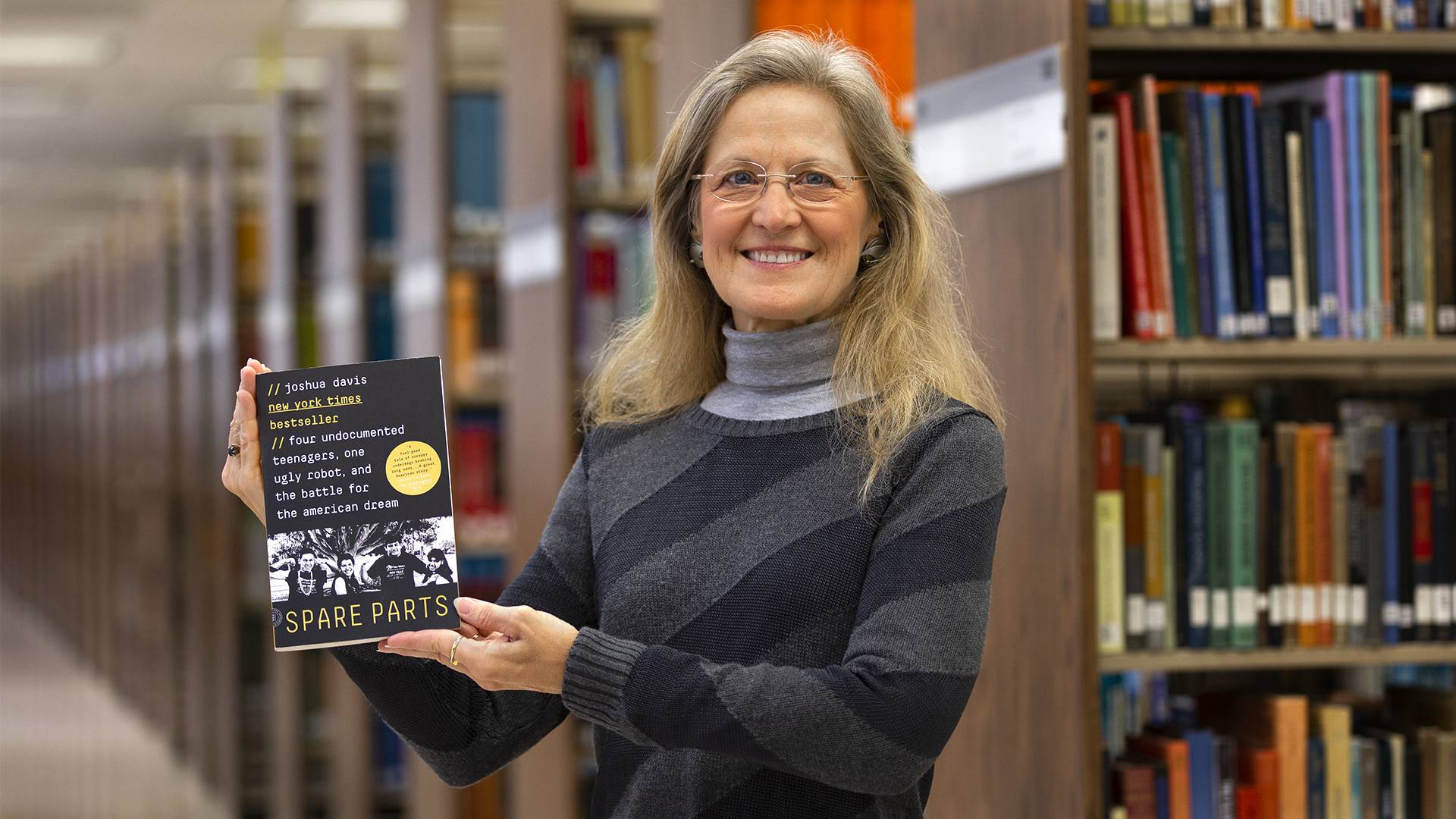UHCL alumna, former NASA engineer to lead Common Reader discussion
February 10, 2020 | UHCL Staff
University of Houston-Clear Lake’s Common Reader Program is launching its first event of the semester titled “A Conversation with Spare Parts’
Lisa Spence and Special Guests” on March 3, 12-1:30 p.m., in the Forest Room. The
book “Spare Parts: Four Undocumented Teenagers, One Ugly Robot, and the Battle for
the American Dream” by Joshua Davis, is this year’s Common Reader selection with the
goal of creating community connections among students, as well as between them and
their professors. The book was made into a movie, released in 2015.
“Every semester, we pool our ideas and vote on a book that is interdisciplinary and
speaks to our identity as a Hispanic Serving Institution,” said Clinical Assistant Professor of First-Year Seminar and History Anne Gessler, who is also head of the 2019-2020 Common Reader Committee. “We evaluated how the
different areas of the university could engage with the book, including the library, Hunter Hall, Orientation and New Student Programs, and the Office of Student Involvement and Leadership. We brainstormed ways to get students engaged in co-curricular events, and that is
what drives our deliberation over the books.”
‘Spare Parts’ tells the story of four undocumented boys from Carl Hayden High School
in Phoenix who found their way to a robotics club sponsored by a caring teacher. Together,
the boys and their teacher created an underwater, remotely-operated robot and began
entering competitions — and winning.
Lisa Spence, a triple-UHCL alumna who recently retired after a 32-year career at NASA,
was a judge in the robotics contest in which the four teens competed back in 2004.
The author included Spence’s experiences and insights on the competition in the book.
“I had run the regional robotics competition at the Neutral Buoyancy Lab, from which winners go on to the international competition, but this was the first
time I’d judged in an international competition,” said Spence. “The Explorer Class,
which is the category that the Carl Hayden team competed in, usually only sees college
students. That’s why I remember them — they clearly would not have had the same level
of education that the college kids would have had.”
Spence explained that each team had to give a 15-minute technical presentation about
their robot to the panel of three judges. “They had to tell us how their robot worked
from a technical standpoint,” she said. “It had to be a team effort, so we had to
make sure each person demonstrated they had this knowledge.”
In comparison to the other college teams’ expensively constructed robots, the Carl
Hayden High School team’s robot was not considered “elegant.” “I had seen plenty of
remotely operated vehicles like theirs, put together with PVC pipe, glue and zip ties,
when I judged high school competitions,” she said.
The boys were aware their robot was not very pretty. In fact, their somewhat crudely
made contraption emitted an unpleasant smell, causing them to nickname it “Stinky.”
Stinky malfunctioned the night before the competition, causing the boys on the team
to stay up all night rewiring and fixing it. “That part of the story is almost the
same for every team,” Spence said. “The team from MIT had the same problem. Midnight
engineering seems to be a rite of passage for this competition.”
The competition, said Spence, had three elements. “There was an in-water part, where
the robot has to work under water. Another part is the presentation, and the third
is to write a technical paper describing the robot,” she said. “The combination of
scores from the written paper and the presentation was weighted equally with how the
robot performed in the water.”
Ultimately, the judges were impressed with the boys’ presentation and they scored
well. “It’s huge that they won the competition,” Spence said. “The fact that they
were a high school team competing in that category is impressive in itself.”
Spence said that she had spent hours speaking with the book’s author, giving him plenty
of context about the competition. “What I think is brilliant about this book choice
for the Common Reader is that it touches on so much. My focus is on engineering and
on the technical, because that’s my background, but there’s so much more going on
here,” she said. “These boys were undocumented. What is the equitable way to treat
children who were brought across the border by their parents? What are we doing with
people on the border, and how can we make access to education equitable?”
Gessler said these and other questions would be addressed in the panel discussion.
“The Common Reader is tied to the Learning Frameworks class, in which students speak about a different component of critical thinking each
week,” she said. “The book discussions will focus on voice, marginality, citizenship
and belonging.”
Learn more about the Common Reader online.
About the Author:
Recent entries by
October 18 2022
Better technology transforms campus safety: Police Chief demonstrates SafeZone to students
October 14 2022
Student's skill with drones takes chicken turtle research to new heights
October 11 2022
Planting event to help UHCL restore native plants to campus, support environmental sustainability







